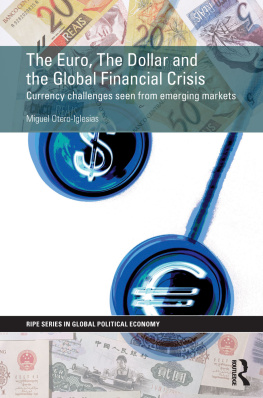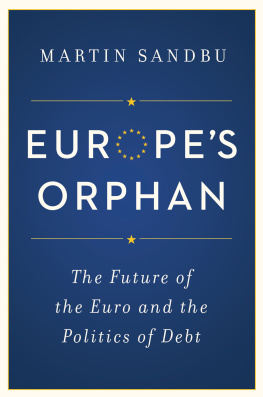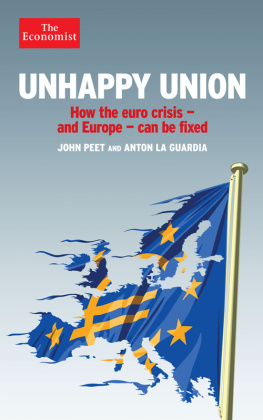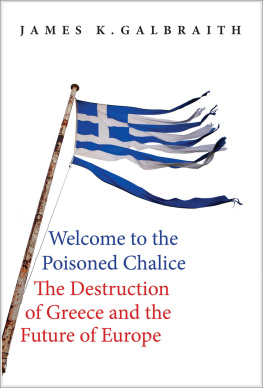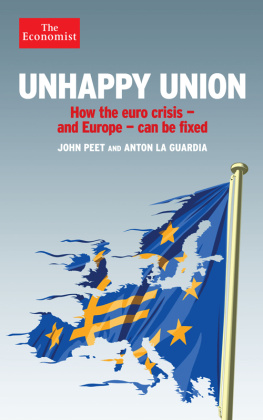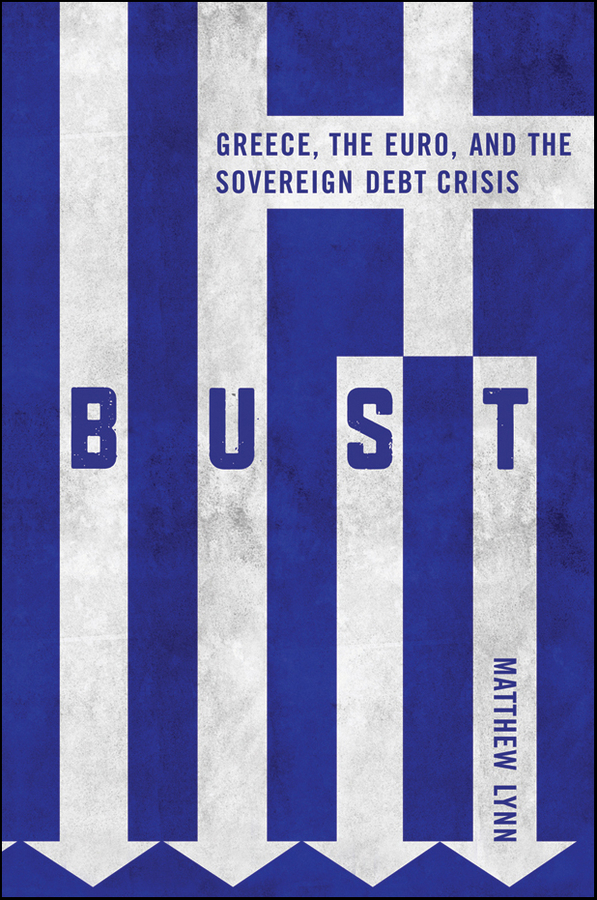Contents
Copyright 2011 by Matthew Lynn. All rights reserved.
Published by John Wiley & Sons, Inc., Hoboken, New Jersey.
Published simultaneously in Canada.
No part of this publication may be reproduced, stored in a retrieval system, or transmitted in any form or by any means, electronic, mechanical, photocopying, recording, scanning, or otherwise, except as permitted under Section 107 or 108 of the 1976 United States Copyright Act, without either the prior written permission of the Publisher, or authorization through payment of the appropriate per-copy fee to the Copyright Clearance Center, Inc., 222 Rosewood Drive, Danvers, MA 01923, (978) 750-8400, fax (978) 646-8600, or on the Web at www.copyright.com . Requests to the Publisher for permission should be addressed to the Permissions Department, John Wiley & Sons, Inc., 111 River Street, Hoboken, NJ 07030, (201) 748-6011, fax (201) 748-6008, or online at http://www.wiley.com/go/permissions .
Limit of Liability/Disclaimer of Warranty: While the publisher and author have used their best efforts in preparing this book, they make no representations or warranties with respect to the accuracy or completeness of the contents of this book and specifically disclaim any implied warranties of merchantability or fitness for a particular purpose. No warranty may be created or extended by sales representatives or written sales materials. The advice and strategies contained herein may not be suitable for your situation. You should consult with a professional where appropriate. Neither the publisher nor author shall be liable for any loss of profit or any other commercial damages, including but not limited to special, incidental, consequential, or other damages.
For general information on our other products and services or for technical support, please contact our Customer Care Department within the United States at (800) 762-2974, outside the United States at (317) 572-3993 or fax (317) 572-4002.
Wiley also publishes its books in a variety of electronic formats. Some content that appears in print may not be available in electronic books. For more information about Wiley products, visit our web site at www.wiley.com .
Library of Congress Cataloging-in-Publication Data:
Lynn, Matthew.
Bust : Greece, the euro, and the sovereign debt crisis / Matthew Lynn.
p. cm.
ISBN 978-0-470-97611-1 (cloth); ISBN 978-1-119-99068-0 (ebk);
ISBN 978-1-119-99069-7 (ebk)
1. Financial crisesGreeceHistory21st century. 2. Debts, ExternalGreeceHistory21st century. 3. GreeceEconomic conditions1974 4. GreeceEconomic policy1974 5. Economic stabilizationGreeceHistory21st century. I. Title.
HB3807.5.L96 2010
330.9495dc22
2010042208
To my mother
Introduction
May Day in Athens
It had been a long time since the Hammer & Sickle , the Marxist symbol of the unity of workers and peasants, had been flown anywhere in Europe with anything approaching pride. But on May 4, 2010, as the protests in Greece over the austerity package imposed on the country by the European Union and the International Monetary Fund gathered force, members of the Greek Communist Party stormed the Acropolis and draped a huge banner across its famous old stones. The slogan, Peoples of Europe Rise Up, was etched into the banner, and, next to the words, in stark, blood-red graphics, the crossed implements that were formally adopted as the official flag of the Soviet Union way back in 1924.
The Acropolis is the most potent symbol of Greek culture; indeed, it is one of the foundation stones of Western civilization, a monument that reminds all of us of the common intellectual and cultural heritage we all share. Over the next 24 hours, across all the news networks, the protestors flag was broadcast as a backdrop as reporters filed reports on the riots rampaging through Athens.
There could be no better way of illustrating what was happening, both on the streets and in the financial markets. On one level, ordinary Greeks were venting their anger and frustration over an economy that appeared to have gone off the rails as suddenly and violently as a train accelerating into a crash. On another, a wider conflict was being played out. The riots were about far more than just a few budget cuts in one smallish country far from the center of the world economy. They were about whether a whole economic and political system created over three generations was sustainable. Or whether, groaning under a mountain of debts and a mess of ill-thought-through dreams and aspirations, it was about to collapse under the weight of its own contradictions.
It was no exaggeration to argue that the postwar economic system established in Europe was breaking apart in front of peoples eyes. And the Hammer & Sickle drove that point home with the kind of unrelenting clarity that would have bought a smile to the corpse of the man who had approved the design, Vladimir Lenin.
Early May 2010 in Athens was to prove an extraordinary few days. Violent, brutal, and passionate, on the streets of the Greek capital, all the fault lines and conflicts within the global economy were about to be played out in vivid Technicolor.
The drama had been brewing for the past two years. In the wake of the credit crunch, following the collapse of the American investment bank Lehman Brothers, the financial markets had frozen. There was a sudden and terrifying collapse in world trade: In response, governments everywhere had massively increased their budget deficits in an attempt to steady economies that looked to be on the verge of tipping into a replay of the Great Depression of the 1930s. But as 2009 turned into 2010, and as the fears of another depression eased, the markets started to worry about something else. The cure was starting to look even worse than the disease. And the buildup of sovereign debts, and whether those debts could ever possibly get repaid, was suddenly the issue everyone was worrying about.
There were a dozen different countries the bond dealers could have picked on. But it happened to be Greece. Over the course of the past few weeks, the countrys Prime Minister, George Papandreou, had been taught a painful lesson in the harsh realities of global finance: When the money runs out, so do your options. The capital markets were no longer interested in buying Greek bonds. Their neighbors and allies in the euro area showed little interest in helping out, either. The countrys debts were proving quite literally impossible to finance. Already, the Greeks had been forced to appeal for outside help. Now the European Union and the International Monetary Fund had landed in Athens with the promise of a rescue package. But the price they would demand would be a heavy one: cuts on a brutal and massive scale, an end to the easy-money culture that had taken root in Greece over the past decade, and a shocking assault on the living standards of ordinary people. That was the price that would have to be paid, and it was no longer negotiable.
As May 1 dawned, it was already clear that this was to be a pivotal weekend in Greek history. The nation that had been the birthplace of modern democracy , which had indeed created the word itself, did not have a great track record of implementing the ideals for which it had been the cradle. Between 1946 and 1949, it had been the scene of a vicious civil war between rival armies backed by the forces of left and right. The country was left in ruins. It struggled to rebuild itself, and managed to miss out on the postwar reconstruction of Europe. In 1967, a group of reactionary, socially conservative military leaders staged a coup, creating a buffoonish, at times ridiculous, Regime of the Colonels that lasted until 1974. This was a country with a long history of settling its divisions with riots and bloodshed. It had happened plenty of times in the past. And now it looked to be happening again.


